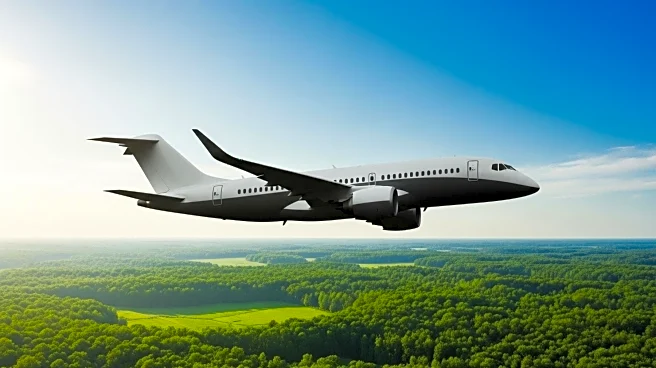What's Happening?
The aviation industry is experiencing significant changes as sustainability mandates become a financial reality. In Europe, airlines are required to use Sustainable Aviation Fuel (SAF), which has already added over $1 billion in costs. The production of SAF remains limited, and airlines face fines for not meeting ambitious blending targets. This situation forces airlines to balance compliance with maintaining credibility. Additionally, supply chain disruptions, changing demand patterns, geopolitical tensions, and digital transformation are reshaping the industry. These factors are discussed at the Skift Aviation Forum, where industry leaders gather to strategize for the future.
Why It's Important?
The shift towards sustainability in aviation is crucial as it impacts both environmental goals and economic factors. Airlines are under pressure to reduce emissions, which could lead to higher fares for travelers. The industry must demonstrate progress on climate impact while managing increased costs. Furthermore, supply chain issues and geopolitical tensions affect route planning and operational efficiency. Digital transformation and potential industry consolidation could lead to fewer competitors, impacting market dynamics and consumer choice. These developments highlight the need for agility and innovation in the aviation sector.
What's Next?
As the industry adapts to these changes, airlines may need to invest in new technologies and strategies to meet sustainability targets and improve operational efficiency. The potential for mergers and acquisitions could reshape the competitive landscape, with stronger players seeking growth and weaker ones aiming for survival. The Skift Aviation Forum provides a platform for industry leaders to discuss these challenges and opportunities, offering insights into the future of aviation.
Beyond the Headlines
The push for sustainability in aviation raises ethical and environmental considerations, as airlines must balance economic viability with ecological responsibility. The scarcity of SAF production highlights the need for investment in sustainable technologies and infrastructure. Additionally, geopolitical tensions require airlines to navigate complex diplomatic landscapes, impacting international relations and travel accessibility.









